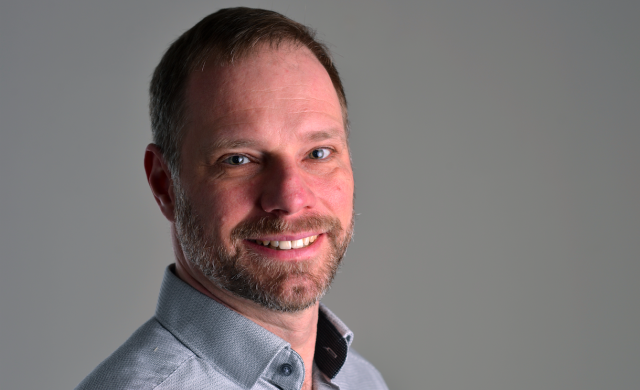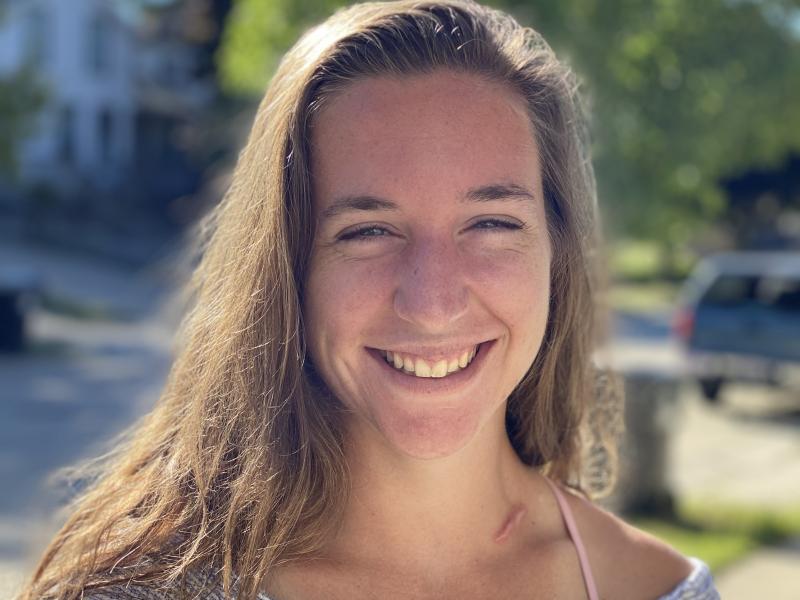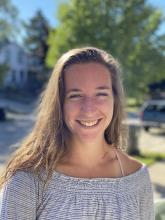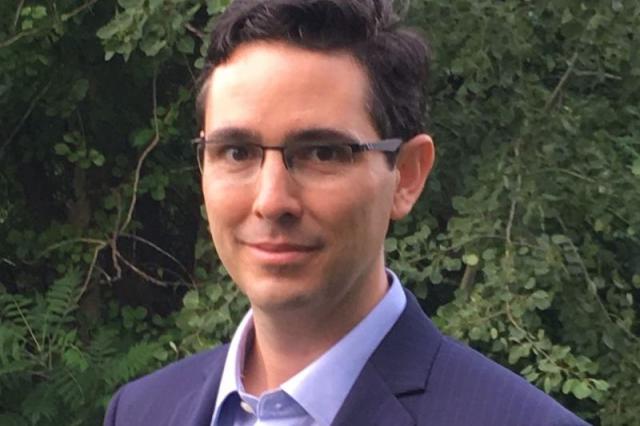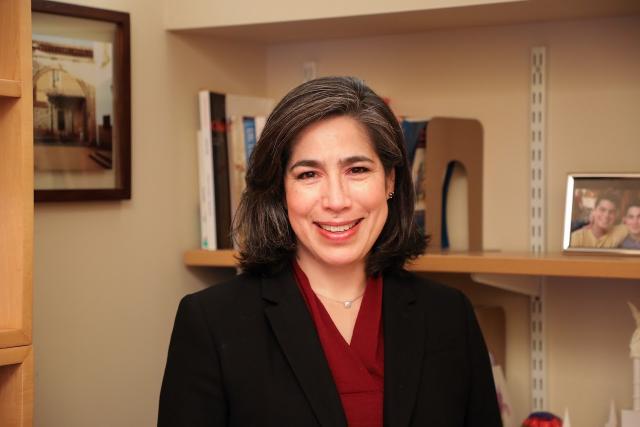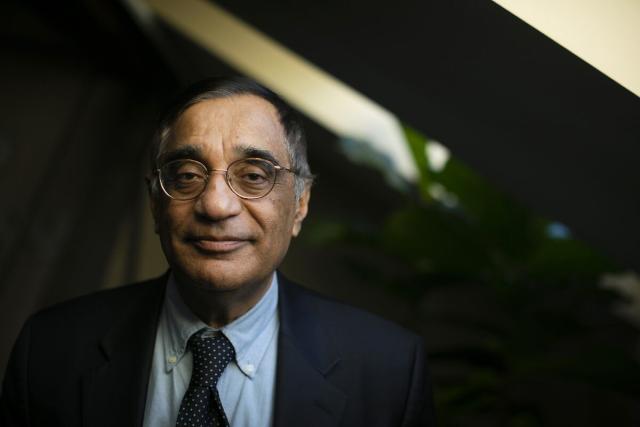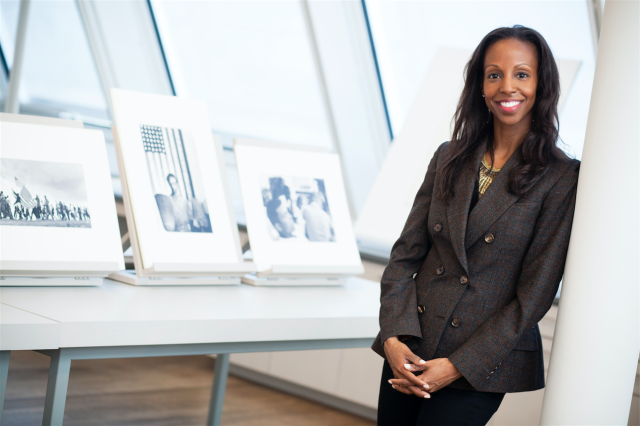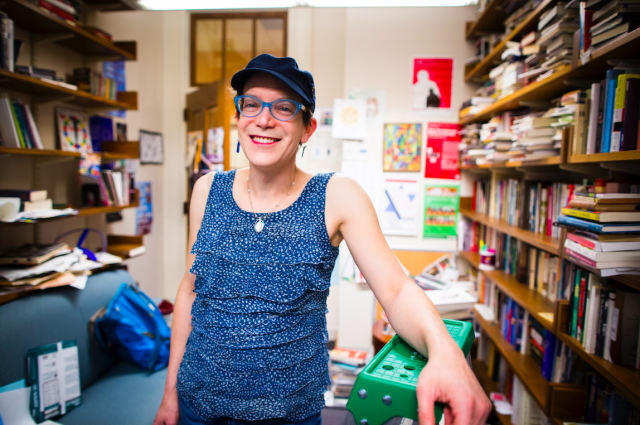While many individuals look towards the future, Alexander Rehding thrives in the present.
On a typical Monday during the academic year, Rehding catches a 4 AM flight to Cambridge. For the beginning of the week, Rehding is on campus, completely invested in his students, teaching, and research. On Thursday, he flies back down to Washington, D.C., where he dedicates time to his husband and kids. The next Monday, he starts all over again.
"I enjoy this crazy commute. When I’m on campus, I’m fully there, dawn to dusk. When I am at home, I am fully here with my family,” says Rehding. “I like this division between work and family - it helps me to be completely present wherever I am."
By living in the moment and being unafraid of spontaneity, Rehding has found great success. As the Fanny Peabody Professor of Music, a music theorist, and a creator of the Sound Lab, Rehding’s work and teaching has had important ramifications in a large number of areas, including the history of music theory, global music theory, sound studies, digital humanities, ecomusicology, nineteenth-century European concert music, theories of listening, and more.
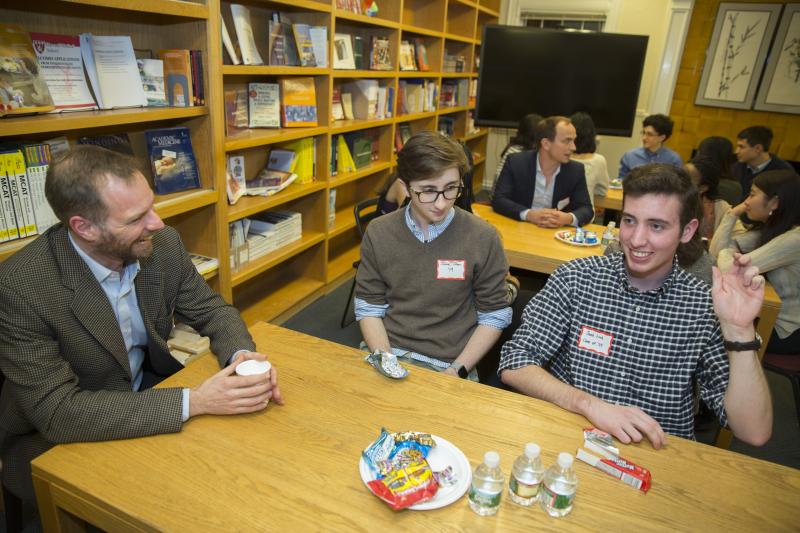
Music professor, Alex Rehding, (from left) talks with Jake Tilton '19 and Jacob Link '19 inside the Office for Career Services during a dinner with arts and humanities faculty and students. Kris Snibbe/Harvard Staff Photographer.
Growing up in Hamburg, Germany, Rehding found music at an early age, but did not know at the time that music and music theory would become his future career and passion.
"I was the odd one out in my family in terms of music. I really liked music from the start, so my parents took me to music classes. I tried other activities, but it was music that really stuck," Rehding recalls. “So I did the usual early music stuff - I tortured my family with my recorder playing, I'm sure. I started on the piano when I was nine. A little later, in my school orchestra, they needed a trombone, so I became a trombonist."
After graduating high school, Rehding did two years of community service working with the elderly. Though he enjoyed this meaningful work and considered pursuing a medical degree afterwards, Rehding could not ignore his early passion for music.
"My family had a medical background - my father was a dentist, and my mother is a psychotherapist, so I always thought that I was going to do something in that vague direction. But when I was doing community service, though I enjoyed it, I realized that this line of work really wasn’t for me. So then I thought, what am I going to do now?" says Rehding. “One of the things I knew at the time was that I really wanted to go abroad, and I enjoyed music. I’d always been good at it, but I never thought I would make it into a career - it had always been a hobby. I decided to study music in college."
Rehding went on to receive his BA, MA, MPhil, and PhD from Cambridge University. After ten years there, Rehding longed for change and moved to the United States, where he completed a variety of fellowships and postdoctoral programs before becoming a professor at Harvard.
Most recently, Rehding’s work has explored interactions between music, culture, and technology. Rehding is teaching the General Education course, “Music From Earth” that will explore interplanetary sound through an investigation of the Golden Record - a mixtape that humans sent into outer space in 1977. While students will answer big questions about the Golden Record and create their own mixtapes, Rehding will bring his commitment to the present moment, his love for student interaction, and his ever-increasing excitement for music to every class discussion.
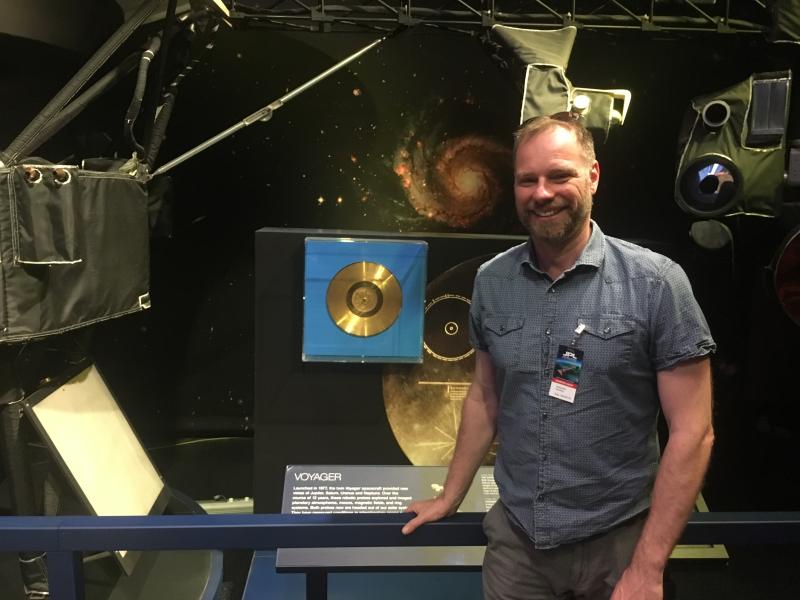
Professor Alexander Rehding stands next to the Golden Record, the subject of his General Education Course "Music from Earth."
"My favorite part about teaching, and what I’m looking forward to about teaching this course in particular, is the students - it has to be the answer, and it is the most obvious one, but it doesn’t make it untrue," says Rehding. Though he is constantly researching and teaching music theory, Rehding loves learning from the discussions he has with his students and is constantly inspired by the vast amount of music that exists.
"Things like Youtube and Spotify, they make different types and examples of music accessible to everyone, examples that wouldn’t have previously been available, and it is so exciting," says Rehding.
“There is so much music going on that is all so different - every time you think you know it all, there is something else that just blows your mind. I’ve perpetually realized how little music I actually know."
Off campus, Rehding is a devoted father to his two children. Though he has many hobbies, including baking cakes, rollerblading, his own personal practice of music, and participating in local politics, Rehding cherishes his time with his family most of all.
"We have two children - twins, who are eight years old," Rehding proudly says. “When we put them to bed, they always ask me to play them something on the piano, which gives me a reason to play every day. When I am here with my family, I am with them completely."
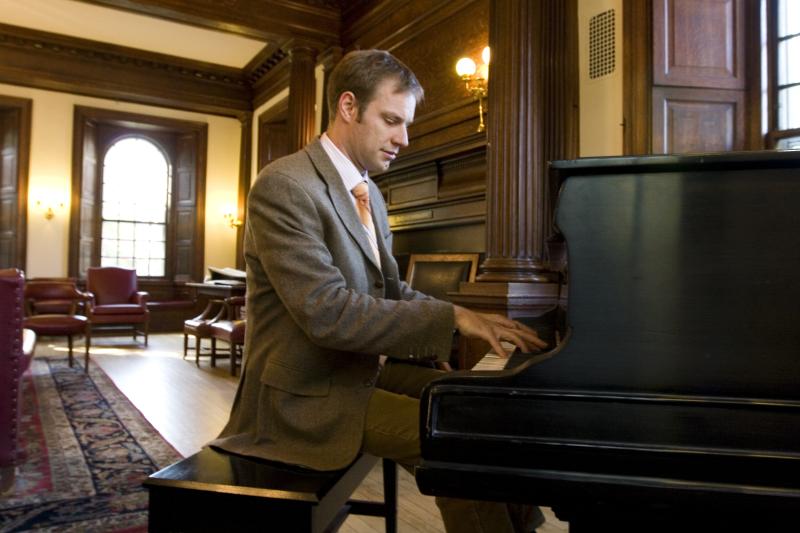
Professor Alexander Rehding plays the piano for his children before bed each night. Here, he is photographed by the grand piano at Phillips Brooks House. Staff Photo by Rose Lincoln/Harvard News Office.
Rehding does not fear the unplanned. Through taking advantage of spontaneous opportunities, Rehding has shaped his life around his passions and family. He advises his students to take similar chances, as one never knows what might come out of them.
"Don’t be afraid to try things out. What I found about my own life trajectory was that so many of the decisions that I made were spur-of-the-moment. If someone had asked me at 18, I never would have thought that I would be a professor at Harvard - that was just not part of the plan," Rehding says. "There is this serendipity in accidents. I really ended up in America because after I received my degree from Cambridge and went back to Germany, they said ‘sorry, you’ll have to try again from scratch.’ They wouldn’t accept the degree. If that hadn’t happened I would have stayed back in Germany, and my life would have been very different."
Alexander Rehding teaches many courses in the Music department and in General Education, including "Music from Earth" and "Understanding Beethoven," which can be viewed in the course directory.

